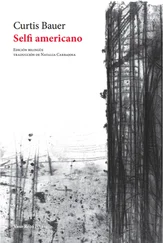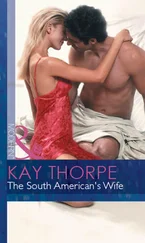Curtis Sittenfeld - American Wife
Здесь есть возможность читать онлайн «Curtis Sittenfeld - American Wife» весь текст электронной книги совершенно бесплатно (целиком полную версию без сокращений). В некоторых случаях можно слушать аудио, скачать через торрент в формате fb2 и присутствует краткое содержание. Жанр: Старинная литература, на английском языке. Описание произведения, (предисловие) а так же отзывы посетителей доступны на портале библиотеки ЛибКат.
- Название:American Wife
- Автор:
- Жанр:
- Год:неизвестен
- ISBN:нет данных
- Рейтинг книги:4 / 5. Голосов: 1
-
Избранное:Добавить в избранное
- Отзывы:
-
Ваша оценка:
- 80
- 1
- 2
- 3
- 4
- 5
American Wife: краткое содержание, описание и аннотация
Предлагаем к чтению аннотацию, описание, краткое содержание или предисловие (зависит от того, что написал сам автор книги «American Wife»). Если вы не нашли необходимую информацию о книге — напишите в комментариях, мы постараемся отыскать её.
American Wife — читать онлайн бесплатно полную книгу (весь текст) целиком
Ниже представлен текст книги, разбитый по страницам. Система сохранения места последней прочитанной страницы, позволяет с удобством читать онлайн бесплатно книгу «American Wife», без необходимости каждый раз заново искать на чём Вы остановились. Поставьте закладку, и сможете в любой момент перейти на страницу, на которой закончили чтение.
Интервал:
Закладка:
I nod. This doesn’t seem so bad; silence on my part is far preferable to the sort of verbal acrobatics I’d need to engage in if I were trying not to either reinforce or undermine what I’d told Edgar Franklin. Not that I’ll be off the hook altogether, obviously—whenever I am interviewed again, I’ll be asked about my comments (which Edgar repeated immediately to the assembled reporters, which I knew he would), but I plan to be terse.
Though she rides the elevator upstairs with us, Jessica doesn’t step out; instead, the elevator attendant, a spry senior citizen named Nicholas, holds open the door as Jessica bids Ella and me farewell, acting as if she’s going home herself, though I’m fairly sure she’s planning to return to the East Wing to keep working. “Thank you for everything,” I say to Jessica. “You deserve a medal for today.”
“You deserve a gigantic apple plaque,” Ella says. Ella is merely making a joke; she thinks I went to see my mother this afternoon and doesn’t know about Gladys Wycomb’s threat, doesn’t know what a long day it’s been. In any case, I’ve already lost track of the chrome apple. I believe Jessica’s assistant Belinda carried it away.
Jessica says to me, “Take it easy tonight, okay?” She looks at Ella. “Make her relax.”
“The same to you,” I say.
“I’m not the one in the eye of the storm,” Jessica says. Abruptly, she jumps out of the elevator and hugs me, and as she does, she whispers in my ear so Ella can’t hear, “You did the right thing.”
Ella and I sit in the Family Kitchen, and Ella pulls cheese, hummus, and baby carrots out of the refrigerator. She isn’t a fan of the food here—even though downstairs the chefs will fix anything we want exactly to our specifications—so I always make sure we’re stocked in the residence when she visits. I call down to ask for a Cobb salad for myself, and Ella and I analyze the evening for a while, discussing the impressive delivery of the girl who recited “Theme for English B,” the vaguely and uncomfortably sexual overtones of the baton-twirling fourth-graders, and Ella says, “Did you talk to Senator Zimon tonight? I think he’s had hair implants.” She adds, “Does Jessica ever annoy you because she’s so perfect?”
I smile. “Does that mean Jessica annoys you because she’s perfect?”
“Not at all!” Ella grins her father’s grin. “No, I’m totally not threatened by this woman who’s close to my own age, who you spend all your time with and like better than me. Not one little bit!”
“I think the world of Jessica, but I only have one daughter, and there’s no one I love more. Would you like to sit on my lap?” I am mostly teasing, as Ella is, too, but she rises, turns, and lowers her rear end onto my thighs for a second. I run my palm down her back, over her still-long caramel-colored hair. Then she stands, reaching forward for a carrot that she dips in the hummus. She bites into it and says over one shoulder, with her mouth full, “What I’m really hungry for right now is a poop sandwich.”
“You’re a class act,” I say. This is an old joke between us, a requirement whenever eating a meal together after time apart. (Needless to say, I never make the joke, but Ella can be counted on.)
“Are you and Dad in a huge fight?” Ella asks.
“Why would you think that?”
“There has to be some fallout from your heart-to-heart with that Franklin guy.”
“Don’t worry about Dad and me. We’ll be just fine.”
“So what’s the thing you wanted to tell me?”
“Oh—” Should I do it? I no longer need to, now that I’ve been spared by Gladys Wycomb’s death, but I still could. What is the difference between giving voice to an overdue truth and being a parent who indulgently unburdens herself? Telling Ella wouldn’t be fair to her, I realize, it would be unsettling—not just because of her religious convictions but also because (I know Ella, and I, too, was an only child) it will make her think she could have had a brother or sister. I say, “It was nothing.”
Ella leans over and kisses my cheek. “Then I’m going to go call Wyatt. Tell Dad when he gets up here that I have something hilarious to show him on YouTube.”
I lightly swat her rear end. “Put your plate in the sink.”
When Ella is gone, I move to the West Sitting Hall, which has a beautiful lunette window overlooking the Old Executive Office Building, the Rose Garden, and the West Wing. I take a seat on a sofa and remain there for an hour and a half, reading. The book I left here yesterday, Stop-Time by Frank Conroy, has been waiting for me for twenty-four hours—all night last night and all day today, while I hopped from Arlington to Chicago to Riley. I enter it, and it welcomes me back.
Just before eleven, I set down the book and stand, and when I do, I remember Pete Imhof’s envelope, folded into the pocket of my linen jacket. I lift it out, and before I reach inside—the envelope is not sealed but already torn open—I see that on the back, in my own seventeen-year-old handwriting, it says, Mr. and Mrs. Imhof. Right away, I know exactly what it is, and with the tip of my thumb, I press against the envelope’s uneven bump, confirming its outline. (It’s so small! Not over half an inch at its widest point.) I pull out the note.
I will never be able to express to you how sorry I am, my seventeen-year-old self explains in blue ink. I know that I have caused you great pain. If there was anything in the world I could do to change what happened, I would. This pendant is something of mine Andrew once told me he liked, so I thought it might comfort you to have it. My pulse is racing as I withdraw the pendant, and it is very tarnished—I will never polish it—and I look at it in my palm: my silver heart. This is what Andrew leaned in to touch that afternoon before he went to football practice, the gift my grandmother gave me for my sixteenth birthday. (Oh, the past, the past—how the memories of the people I loved sear me.)
I’m not sure what I’ll do with the pendant; it’s obviously an inexpensive piece of jewelry, not particularly suitable for a sixty-one-year-old woman and even less so for the first lady, but maybe I can wear it on such a long cord that it won’t be visible beneath my shirts. No object in the world could be dearer to me, and I marvel at the strangeness of its source. Perhaps, though I didn’t yet know I had it, this is what nudged me to go talk to Edgar Franklin—that Pete Imhof had given me back my heart.
I MEET CHARLIE in the hall outside our bedroom. He is walking from the opposite direction, and I can tell that he’s trying to decide how friendly or unfriendly to be—after we make eye contact, he immediately looks away, then seems to realize how absurd it would be to pretend not to see me when it’s only the two of us, or only the two of us and Snowflake, who scampers off as soon as he notices me. A valet hovers outside our bedroom and opens the door as we approach, nodding once at Charlie. “Good night, Mr. President,” and then to me, “Good night, ma’am.”
“’Night, Roger,” Charlie says as we walk by, and I smile without speaking.
When the door closes behind us, I say, “Please don’t give me the silent treatment. If you’re angry, let’s talk about it.”
“ If I’m angry? Lindy, how the fuck could you blindside me like this? You know how it looks if there’s not even unified support for the war in my own marriage? I’m the laughingstock of the world tonight, and I have to sit there clapping for baton twirlers.”
“Sweetheart, I think you’re overreacting. What I said to Edgar Franklin wasn’t a political statement.”
“What planet are you living on? When the first lady of the United States talks, it’s always political!” Between our bed and the flat-screen television above the fireplace is a sitting area: two wingback chairs, a sofa, and a wooden table off which Charlie grabs the remote control. “Hmm, I wonder what they’re saying on TV. I’m sure this isn’t all over the networks, because obviously, it was just you speaking as a private citizen, it wasn’t a political statement, and the media fully understands those subtle distinctions.” When the screen comes to life—it’s Fox News—there’s a clip of Charlie’s press secretary, Maggie Carpeni, saying this evening, “Listen, we all want to bring the troops home, every person in America does. The question isn’t if, it’s when, but the first lady knows as well as anyone else that a precipitous withdrawal would have disastrous consequences. She and the president stand united in their certainty that victory will come when stability and freedom have been achieved.”
Читать дальшеИнтервал:
Закладка:
Похожие книги на «American Wife»
Представляем Вашему вниманию похожие книги на «American Wife» списком для выбора. Мы отобрали схожую по названию и смыслу литературу в надежде предоставить читателям больше вариантов отыскать новые, интересные, ещё непрочитанные произведения.
Обсуждение, отзывы о книге «American Wife» и просто собственные мнения читателей. Оставьте ваши комментарии, напишите, что Вы думаете о произведении, его смысле или главных героях. Укажите что конкретно понравилось, а что нет, и почему Вы так считаете.












